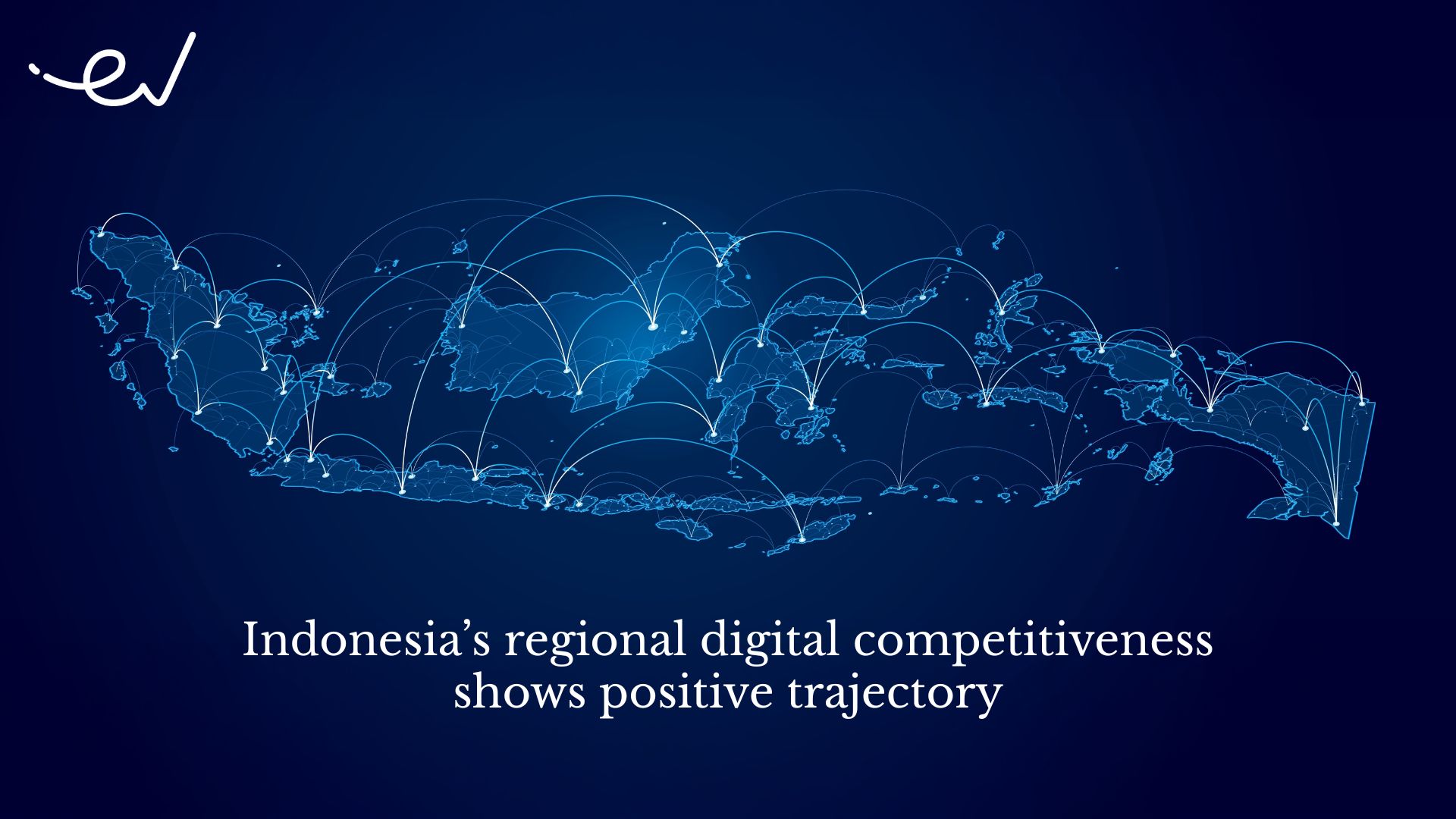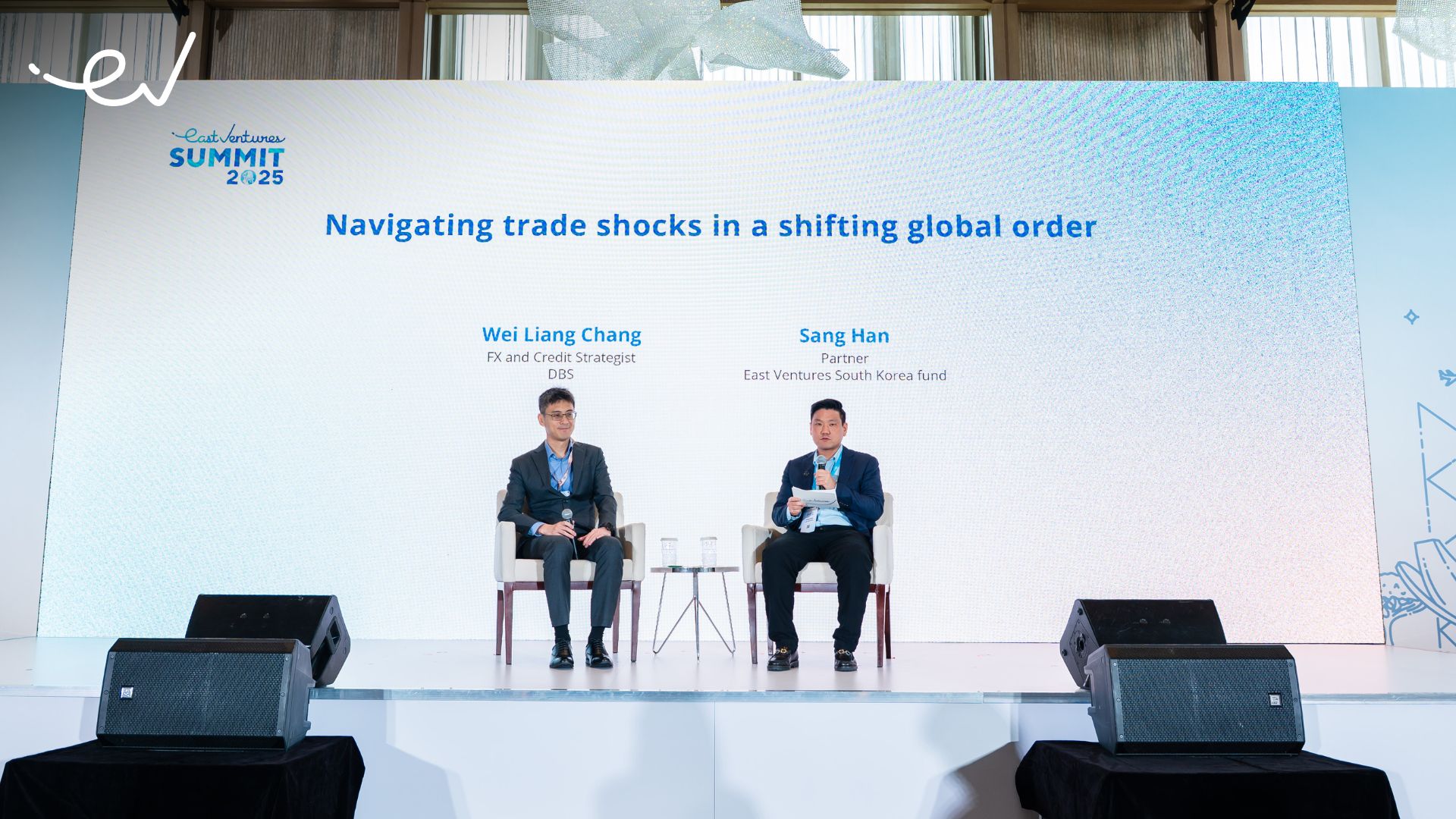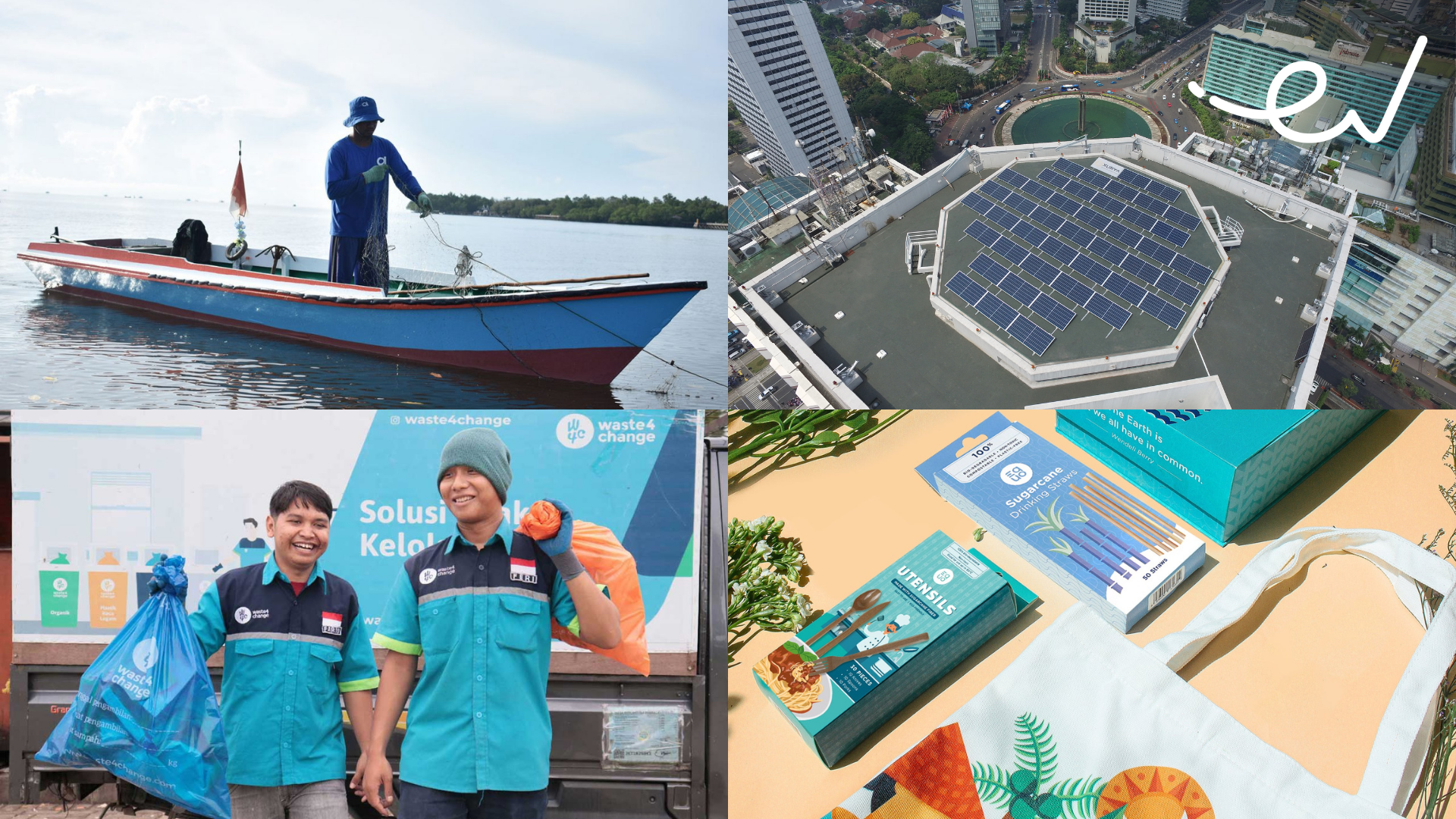The East Ventures — Digital Competitiveness Index (EV-DCI) 2025 indicates a sustained positive trajectory in Indonesia’s digital competitiveness. The national EV-DCI 2025 score stands at 38.8, representing a 0.7-point rise from the previous year.
These findings are based on the EV-DCI 2025 research, a collaboration between East Ventures and Katadata Insight Center (KIC), published in May 2025. The research provides a mapping and analysis of the digital competitiveness across 38 provinces in Indonesia.
The EV-DCI 2025 further reveals that the majority of provinces experienced an improvement in their index scores, with only a few regions showing a slight decline.
According to the report, “The narrowing digital gap between regions reflects progress towards equitable distribution.
The following are the top 10 provinces with the highest EV-DCI 2025 scores:
- DKI Jakarta (78.4)
- West Java (61.9)
- Banten (55.5)
- East Java (53.7)
- DI Yogyakarta (52.1)
- Bali (50)
- Riau Islands (49)
- East Kalimantan (47.9)
- Central Java (46.8)
- North Sumatra (46.6)
Special cases
This research also highlights several provinces that have experienced significant improvements or declines in their ranking. These score changes are accompanied by efforts from the local governments to improve their digital competitiveness.
First, DKI Jakarta has maintained the top position in the EV-DCI score for six consecutive years. The Entrepreneurship and Productivity pillar contributed the most to its score this year.
The EV-DCI 2025 notes that the Jakarta Social Agency, through Jakarta Entrepreneur (JakPreneur), supported 1,452 Micro, Small, and Medium Enterprises (MSMEs) in 2024 by providing training, licensing assistance, marketing support, and capital access.
This program also expanded the market reach of 71 assisted MSMEs through collaborations and an e-order system. In 2025, the program will focus on enhancing the quality of MSME development.
Meanwhile, in 2024, the Department of Industry, Trade, Cooperatives, and Small and Medium Enterprises (PPKUKM) collaborated with universities and e-commerce institutions through e-Smart training, which 8,279 SME participants attended.
Second, East Kalimantan has consistently ranked in the top 10 of the EV-DCI for the past five years, making it the only province outside Java to be on the list.
This improvement is supported by the development of the new capital city, Nusantara (IKN), and various regional digital initiatives in the transformation towards a Smart Province.
The East Kalimantan Provincial Government established the Information and Communication Technology Council (ICT Council) at the end of 2024. It issued Governor Regulation No. 49 of 2024 on Public Communication Media Management to support the development of its digital ecosystem.
Third, North Sumatra consistently ranks among the top 15 provinces. One contributing factor is the indicator measuring the ratio of workers using the internet for sales through social media, which positively influences the province’s score.
Meanwhile, the North Sumatra Provincial Government continues to foster regional productivity through the North Sumatra Innovation and Investment Week (PIISU), which involves 47 public and private sector institutions.
Fourth, Papua recorded the highest national score increase in 2025, climbing 14 places from the previous spot in 2024. This reflects the potential impact of affirmative policies and the expansion of basic infrastructure.
Among the initiatives taken by the Papua Provincial Government are providing free internet access at 36 locations—including houses of worship, schools, dormitories, and villages—as well as expanding satellite-based internet (VSAT) access points from 20 locations in 2024 to 250 locations across seven districts in 2025 to serve remote areas.
The EV-DCI 2025 report highlights it as an indication that “affirmative interventions and well-targeted policies by the provincial government are beginning to yield tangible results in strengthening digital competitiveness. This progress is particularly significant given Papua’s considerable geographic and connectivity challenges.”
Fifth, West Sulawesi remains consistently at the lower end of the EV-DCI index rankings from 2020 to 2025, dropping from 33rd to 36th.
This decline is attributed to weakening scores in the Regulatory and Local Government Capacity pillars. In 2024, the poverty level in West Sulawesi reached 162,200 people, or 11.2% of the population.
Digital infrastructure development in West Sulawesi also lags behind, with a score of 59.0, below the national average of 65.0. According to the 2024 APJII survey, internet penetration in the province is 59.1%, the lowest nationwide after the Papua Highlands province (57.3%), while the national average reaches 79.5%.
Currently, the West Sulawesi Provincial Government is piloting the Community Internet School under the Community Information Group (Senter Kim) in two villages: Salutiwo Village in Bonehau Subdistrict, Mamuju, and Karataun Village in Kalumpang Subdistrict, Mamuju. This pilot project is expected to be expanded to 572 villages to become digital villages.
The EV-DCI study underscores that digital competitiveness across provinces remains uneven nationwide. Understanding the unique potential and needs of each region is key to formulating effective strategies for equitable development.
The digital competitiveness mapping provided by EV-DCI serves as a critical tool in identifying opportunities and challenges across the 38 provinces.
“This mapping is expected to serve as a reference for formulating well-targeted regulations and policies to drive inclusive digital transformation,” the study concludes.
The original article was published on Katadata, 13 June 2025.








